20:50
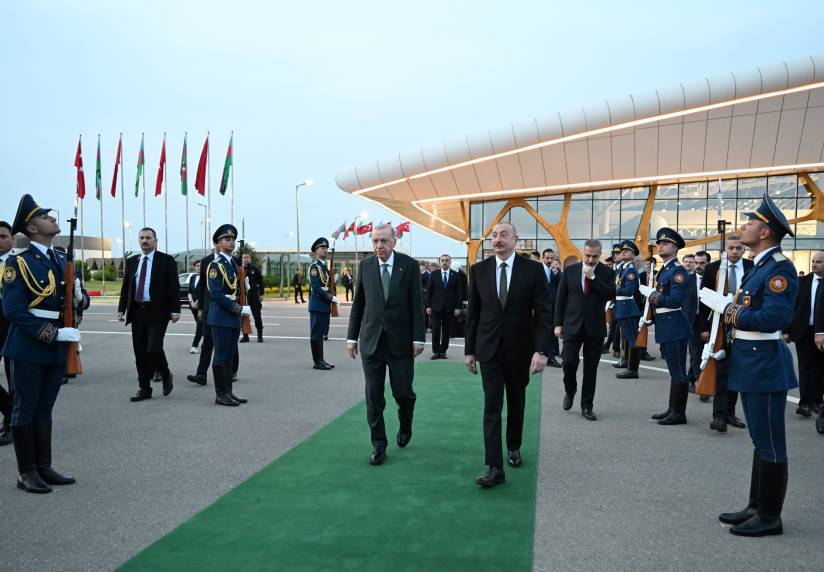
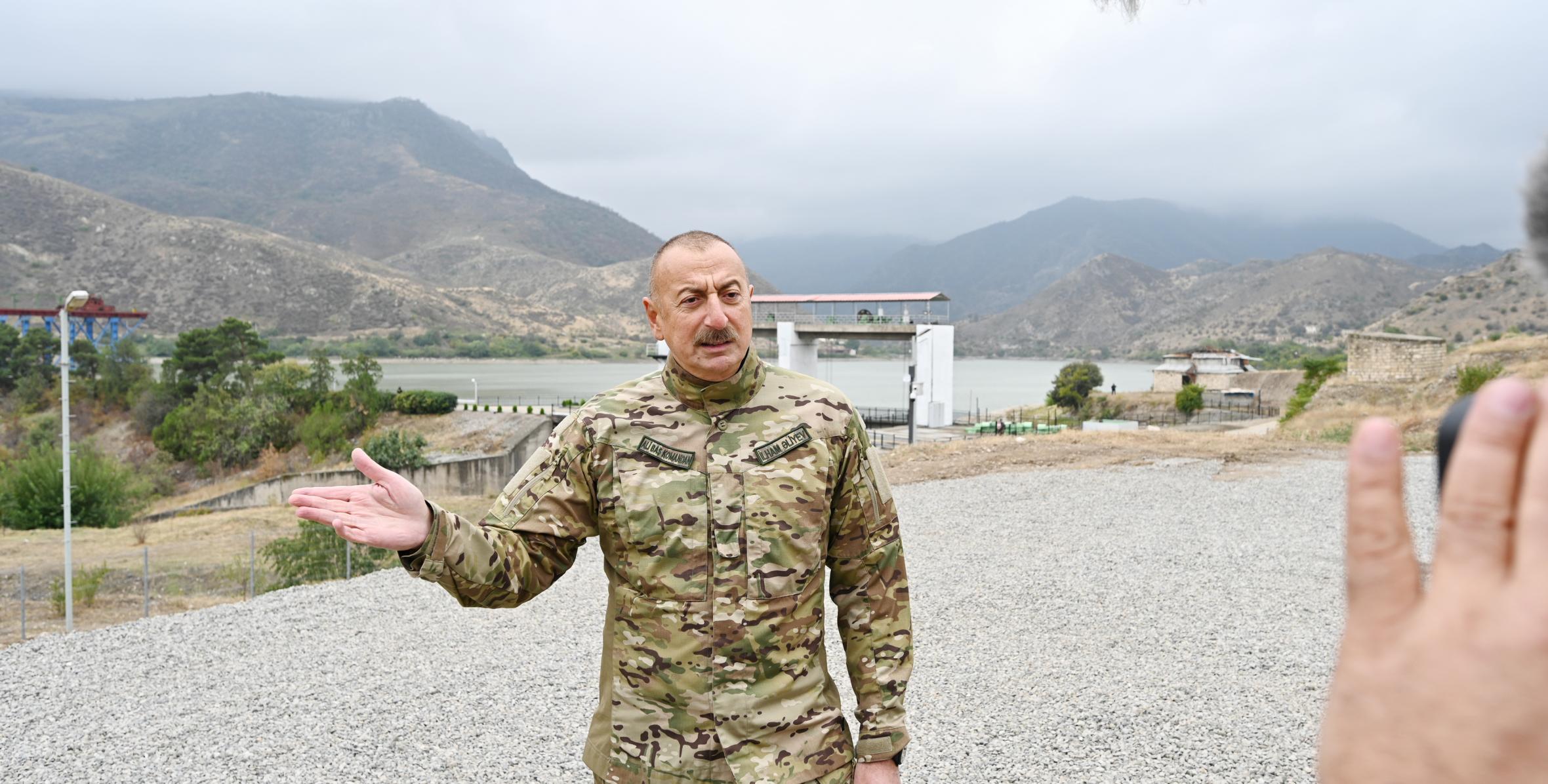
On October 3, President of the Republic of Azerbaijan Ilham Aliyev raised the flag of Azerbaijan in Sugovushan settlement of Tartar district.
The head of state then delivered remarks.
Remarks by the President Ilham Aliyev
- One year ago, on 3 October, Sugovushan settlement was liberated from occupation. It was a very significant event. It was a great success, a great victory to liberate the strategic settlement in the first days of the war. During the liberation of this settlement, we had martyrs and wounded servicemen. May Allah rest the souls of all our martyrs in peace and grant healing to the wounded.
We once again paid tribute to the memory of our heroic martyrs who died for the Motherland on Remembrance Day on 27 September.
The liberation of Sugovushan was of great strategic importance because the location of this settlement played an important role in the subsequent course of the war, and the fact that the settlement was in our hands gave us an advantage in our future operations. Naturally, the enemy probably knew, of course, that we would move in this direction. Talish village and Sugovushan settlement were liberated on the same day, on 3 October of last year. Very strong fortifications had been built here. There were several lines of defense. The enemy had held all strategic heights, the heights leading to the settlement. The Azerbaijani Army showed great heroism and self-sacrifice in liberating Talish and Sugovushan as a result of fierce battles. Another important feature of the liberation of Sugovushan and Talish was that after the liberation of the first villages – the first six villages were liberated on the first day of the war, on 27 September – no settlements were liberated until 3 October. There were natural reasons for that. There were preparations, maneuvering, and fierce clashes. However, the liberation of more settlements after the victories on the first day of the war certainly gave our army and people additional strength and morale, and the liberation of eight villages on the seventh day of the war, including the liberation of these villages in the former Nagorno-Karabakh Autonomous Region, gave us a tremendous advantage.
The strategic importance of these villages is that a large enemy contingent was deployed here. The liberation of these villages also provided us with control over the strategic roads in the region, and also created major constraints and restrictions for the movement and maneuvering of the enemy's manpower. A large enemy contingent was stationed in the area of Talish village and Sugovushan settlement, and this contingent could not take part in other operations until the last day of the war. First of all, because the strategic roads were already under our control, and secondly, if the enemy had withdrawn its forces from here, the Azerbaijani Army could have advanced in this direction, of course. Therefore, our tactical steps and maneuvers were deliberate steps, and a large enemy military unit was effectively paralyzed in this direction.
The importance of Sugovushan settlement is also that it is home to the Sugovushan reservoir. The reservoir is of great strategic significance. This reservoir, along with the Sarsang reservoir, was built on the initiative of national leader Heydar Aliyev in 1976. The main purpose of these reservoirs was to supply water to the regions located outside the administrative boundaries of the former Nagorno-Karabakh Autonomous Region - Tartar, Barda, Aghdam, Goranboy, and other districts. During the occupation, the contemptible enemy committed environmental terror against us. It was engaged in water terrorism. In fact, a special report on this issue was presented at one of the sessions of the Parliamentary Assembly of the Council of Europe, and a resolution was adopted. The Armenian state was blamed for that, and this was our notable success. It is no coincidence that after that, Armenian lobby organizations began to terrorize morally the authors of that report. During the occupation, Armenians cut off water in the summer and released it in winter. In the summer, our villagers and farmers were deprived of water, while in winter they released the water, causing natural disasters and floods. In other words, it shows again what an ugly enemy we faced. They used every opportunity to cause damage to us. Thanks to the liberation of the Sugovushan settlement and the re-establishment of control over the reservoir, the Armenian state lost those leverages. We are in charge here now. This year, water was supplied to Tartar and other districts using the Sugovushan reservoir for the first time in 30 years. As a result of the liberation of this settlement, water has been supplied to 30,000 hectares of land that were not irrigated or were irrigated insufficiently before. The canals are being repaired now. Specific steps are being taken to effectively use the existing water resources in our liberated lands – East Zangazur and Karabakh economic zones – and a substantial program is being implemented. All maps of water sources have already been developed and the construction of new reservoirs is on the agenda.
At the same time, two hydroelectric power stations were built by national leader Heydar Aliyev near the reservoir during the Soviet era. During the war, the enemy destroyed these stations too. More than 30 hydroelectric power stations in Kalbadjar and Lachin districts were destroyed by the Armenians during and after the war when they were given time to leave, and these stations are being restored now. In particular, work has begun on the restoration of the Sugovushan-1 and Sugovushan-2 hydropower plants, which are already in operational condition. They have been from scratch. It once again shows our strength and demonstrates our policies. We are taking tangible steps to implement infrastructure projects, and although it has been less than a year since the war ended, see how much work is being done. Sugovushan settlement is of special importance in terms of providing this region with electricity and water. Another important aspect of the liberation of this settlement, I want to say again, is the further strengthening of our moral and psychological superiority.
Now, if we look at the chronology of the war, we can see that six villages, the Murovdagh range, and the Aghdara mountains were liberated on 27 September, and eight more villages, including Sugovushan settlement and Talish village, were liberated on 3 October. On 4 October, many more villages were liberated, including the city of Jabrayil.
In other words, it boosted our army's strength and morale. We maintained this moral advantage until the last day, until the last minute of the war. The enemy had already started to realize that all their propaganda was nothing but lies and fabrications. The enemy's propaganda had been spreading false information about their tactical retreats day and night, and this nonsense was circulated. It is probably a novelty in the military craft. They were describing the towns and villages we had already liberated as those where battles were still ongoing. In real life, however, in real battles, everyone saw everything. In particular, the personnel serving in the Armenian army saw that we were winning, that we were advancing, and that no force could stop us. Once Talish and Sugovushan, which were considered almost impregnable from a military standpoint, were liberated by the Azerbaijani Army, they were convinced that our Victory saga would continue.
Of course, the Armenian army and personnel were in a deep moral and psychological shock. They were terrified, and in the following period, from 3 October until the last minutes of the war, the Armenian army remained in fear. It is no coincidence that there were more than 10,000 deserters in the Armenian army. They realized that they could not stand in front of us. They realized that their government was lying to them and sending them to death, that it was carrying out meaningless operations, as a result of which the personnel of the Armenian armed forces was actually sacrificed. An army of 10,000 deserters could not resist us, of course.
After that, the glorious Victory March of the Azerbaijani Army and our Armed Forces continued. It is true that in some places the Armenian side did put up some resistance. In some places, it created difficulties for us. But this is a war. After all, they had built great fortifications over 30 years – look at these mountains, they were all natural fortifications – and, of course, they had the means to defend themselves. But they already knew that they could not withstand us. The presence of 10,000 deserters speaks volumes.
There was former Armenian president Serzhik Sarkisyan among those deserters. I was recently told that he had uttered some nasty words about Azerbaijan and about the national leader – in a manner befitting Serzhik. He is the first deserter himself. Because he showed up in Khankandi during the war, as if he would do something there. But when he saw that the Azerbaijani Army was advancing and could grab him by his ear and drag him to Baku, he fled from there like a coward. I did not call him Serzhik Sarkisyan to belittle him, but because that is his real name and surname. We have this information in our archives. His birth certificate and his Komsomol ID state that his name is Serzhik Sarkisyan. Then he changed it to Serzh Sarkisyan, as if Serzh is more acceptable.
This man has been known throughout his life as a thief, criminal, fraudster, traitor, and deserter. There is no one in Armenia who wouldn’t know of Serzhik’s filching. The “war heroes” associated with him are either in prison or in hell today. The “general” who sold “soldier’s stew” and is already burning in hell, Serzhik’s right-hand man, shows the true face of the Armenian army and that of Serzhik. What words does a general who sells “soldier’s stew” during war deserve? Another right-hand man of Serzhik’s - war criminal who served as defense minister during the war, was recently arrested in Armenia for corruption. He was buying faulty weapons and pocketing the money. We have ample information about this – both before and during the war. The ground was burning under their feet, the Azerbaijani Army was advancing every day, but the Armenian defense minister was signing contracts to buy defective weapons and pocketing the money for the price difference. Such are Serzhik's students, thieves just like him.
I have said that Serzhik is a war criminal. I am not the only one who says it. It is also stated by all impartial and independent political scientists and journalists who are familiar with the region. In an interview with the British journalist, he said that he had personally committed the Khojaly genocide. He also explained that the Azerbaijanis should know that the Armenian army could take up arms against the civilian population too. That bloody criminal is Serzhik Sarkisyan. I call him a traitor and this is not an insult. He has been a traitor at every single step. Firstly, towards the people of Azerbaijan whose bread he had been eating. Secondly, towards Gevorkov, the former first secretary of the Nagorno-Karabakh Autonomous Region, as he was his aide, he carried his briefcase for him. This is part of his biography. He may have had this deleted, but it is still available in our archives. His appointment was authorised in Baku. We have everything in our archives. Serzhik Sarkisyan was formally Boris Gevorkov's assistant, but he was actually his servant, a kebab maker, and a party organizer. What happened then? Then, as soon as the separatist movement began, Serzhik betrayed Gevorkov. That was the second act of betrayal. The third act of betrayal was against his leader Kocharyan. Now there is no one in Armenia who wouldn’t know this. It was Kocharyan who took Serzhik by the ear and took him from one office to anoher. He had him appointed to all positions. He also forcibly had him appointed as president. But the Armenian people hated Serzhik. What happened after that? Less than a year later, he betrayed Kocharyan too and did not even answer his phone calls. Notice how lowly this specimen is.
An analysis of the war shows again that it was the likes of Serzhik Sarkisyan who lost the war. He now wants to blame the defeat on Pashinyan, as if it is Pashinyan who bears that responsibility. Pashinyan came to power in 2018. Could he have built an army in just two years? Or could he have defeated a “strong” and “formidable” army like ours? It is Serzhik who created that army. Serzhik was the minister of defense in Armenia. Serzhik was the prime minister of Armenia. He was the head of the Presidential Administration and head of the Ministry of Security. He was president for 10 years. Who created this army if not Serzhik? By crushing that army, we have destroyed Serzhik and those like him. Let him not shift the blame for defeat on Pashinyan. What Pashinyan did is another matter, but we have defeated Serzhik, brought him to his knees, broke his back. He knelt before us, the army he had built was on its knees before us. I am here today as the Supreme Commander-in-Chief, in the territory of the former Nagorno-Karabakh Autonomous Region. If Serzhik is a man, let him come here instead of talking of manhood. He talks about manhood in the Caucasus. First of all, his peopel have nothing to do with the Caucasus. They are resettlers here and everyone knows where they came from. Secondly, if you are talking about manhood, come here as a man. Look, I am standing here. I am standing in Sugovushan, which you call “Madagiz”. If you are a man, come over here. Otherwise, you can't make a hero out of yourself by sitting and crowing there in Yerevan. I once said that he should throw away the scrap he was still wearing on his chest. Those medals are not worth a penny. He was given the best punishment by the Armenian people who kicked him out of office in 2018. In the 2018 elections, he committed yet another fraud by allegedly receiving 50 percent of the vote. And the accomplice of that crime is the OSCE Office for Democratic Institutions and Human Rights. Because together with Serzhik – I do not know what sort of a deal they struck but I can guess – they recognized his victory. This man is widely ridiculed, mocked, and hated in Armenia. He allegedly gained more than 50 percent of the vote, appointed himself prime minister and the OSCE turned a blind eye to that. So there are two culprits – one is the OSCE Office for Democratic Institutions and Human Rights, which always despises Azerbaijan, and the other is Serzhik. But after that, the Armenian people stood up. The Armenian people stood up and threw him out of office. What did he do after that? He returned disgracefully and addmited to be worng. He declared that Nikol was right. How can someone who calls himself a man say such a thing? Can a person who calls himself a man humiliate himself to that extent? So he was done away with like that. For the next two years, he kept his mouth shut. He was insulted so much. So many of his criminal relatives were arrested. He has a close relative who went into hiding abroad, received a Guatemalan passport in Colombia and also changed his name. Just like Serzhik made himself Serzh early on, his relative also gave himself the name of Gonzalez. They grabbed him by the ear and arrested him. He stayed tight-lipped in fear. What can he say after all? But he seems to have reemerged after the war. If it hadn’t been for the war, if it hadn’t been for this bitter defeat, Serzhik would be in prison now. A thief like him may not have been born in our region yet.
Him opening his ugly mouth and talking about my father in Irevan today will cost him very dearly. We almost grabbed him by the ear. He found out that we were approaching, ran away from Khankandi, and found refuge in Irevan. In the recent elections, he failed to get even five percent of the vote. See how much the Armenian people hate this creature that they voted for the government that was blamed for losing the war, not for him. That is why I am saying to you again – look, I am here, I am in Sugovushan, I am in Shusha, I am in Hadrut, I am in Khojavand, I am everywhere. But where are you? In hell, together with the status that has gone to hell. That is it. It is over.
By saying these words, I do not respond to an element that only opens his ugly mouth to utter some nonsense, someone giving off the smell of naphthalene. I appeal to people like him all over Armenia, to all those who nurture revanchist sentiments – come to your senses. The iron fist is still here. Don't upset us and behave. If you behave, then you can live safely. But if there are further provocations, statements or actions against us, we will crush your head regardless of anyone. No one can protect you.
While visiting Sugovushan and Talish villages today, I once again see the heroism of our people and our Armed Forces. Everyone who comes here can and will see that. Because the liberation of these places from the occupation in the face of death shows the greatness of our people.
Today, raising the national flag in both villages, I once again pay tribute to the memory of our martyrs. I also thank the people of Azerbaijan for uniting like a fist during the war, bolstering the army and rallying around me. We crushed the head of the enemy and won because of that. From now on, we will forever live as a victorious nation and a victorious country.
Karabakh is ours! Karabakh is Azerbaijan!
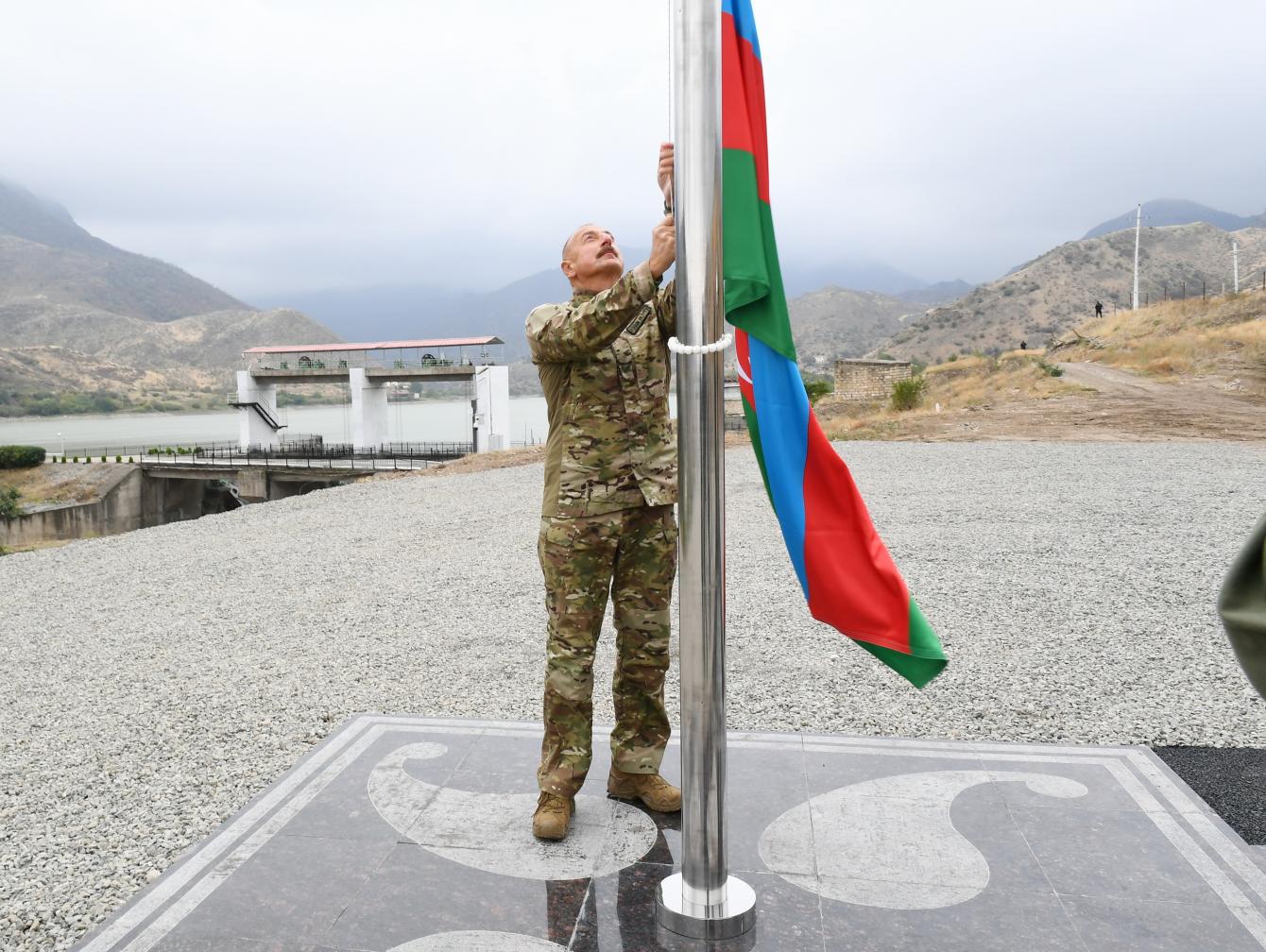
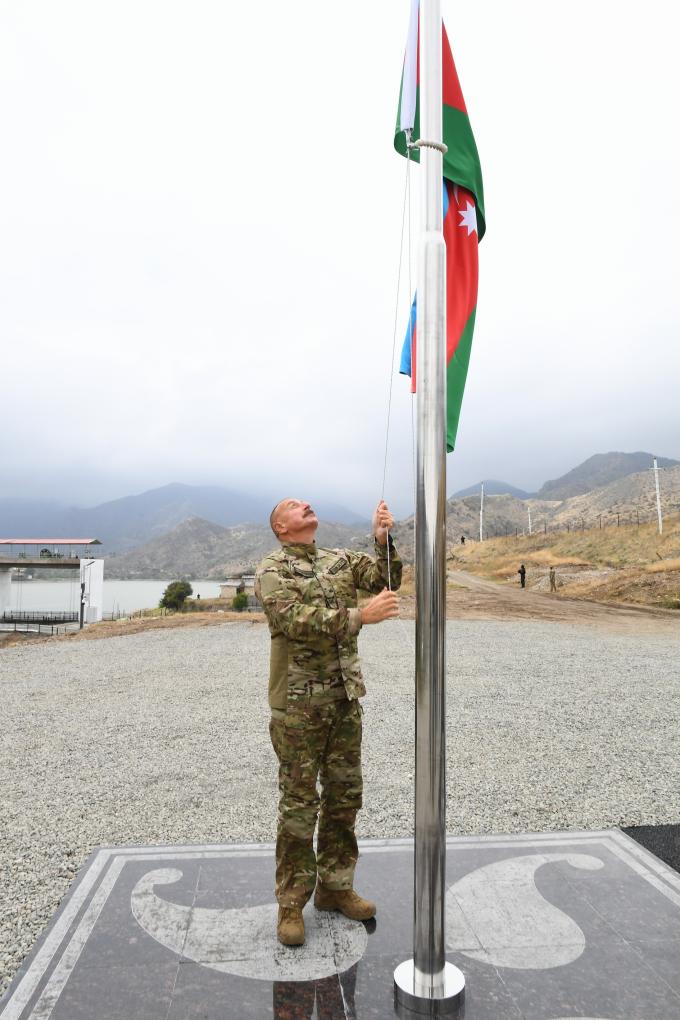
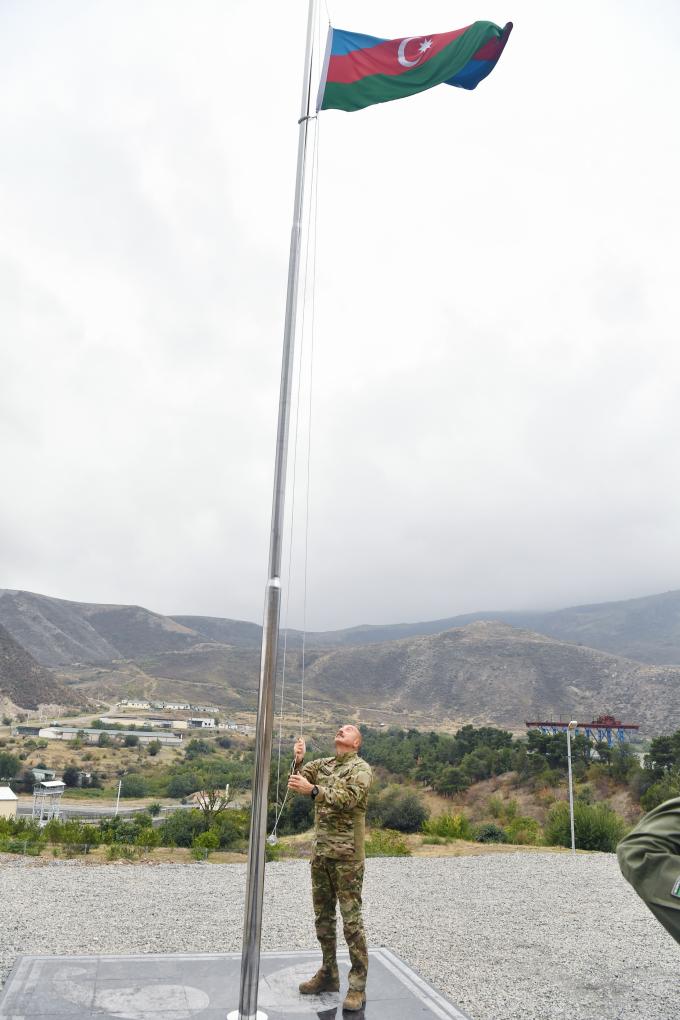
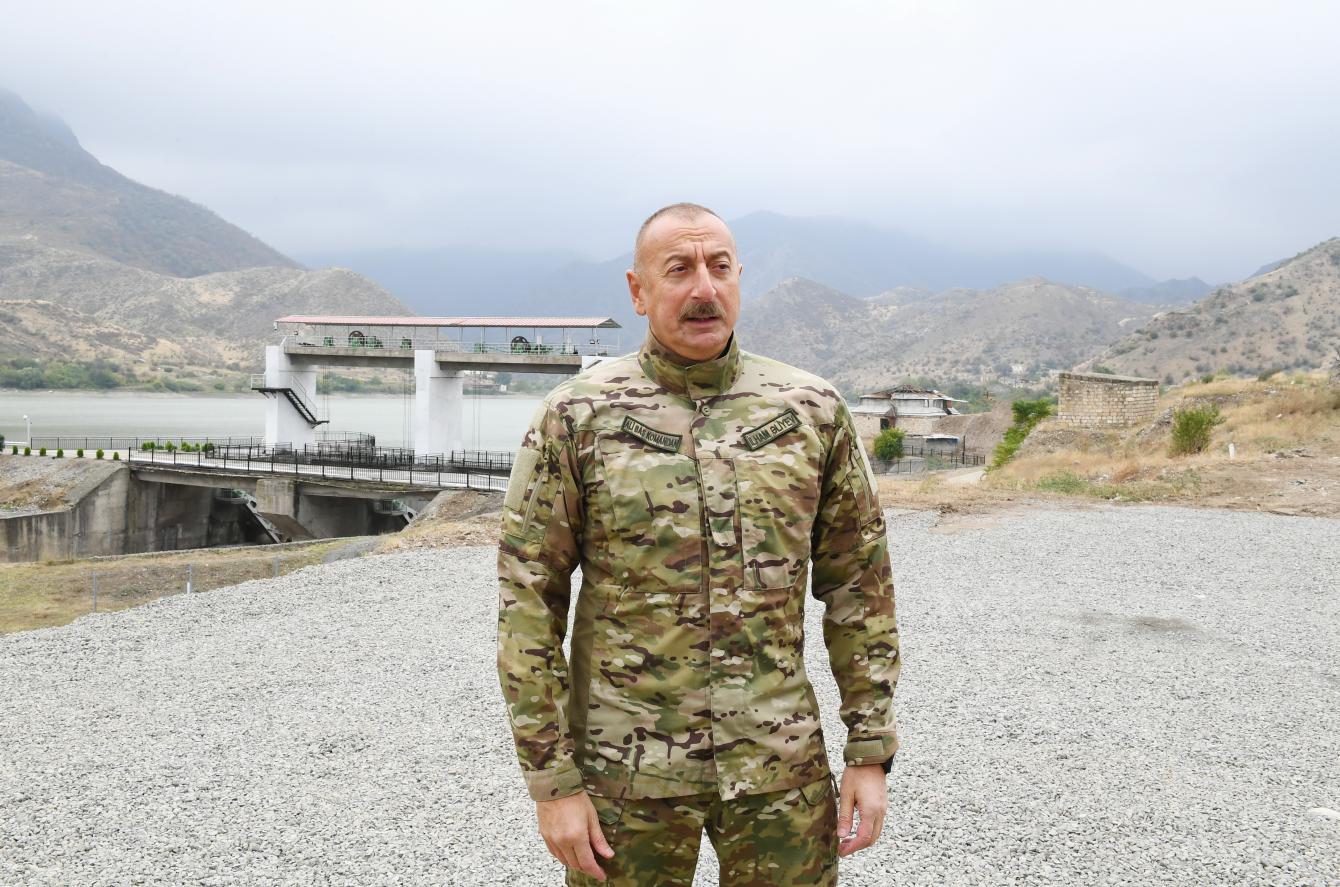
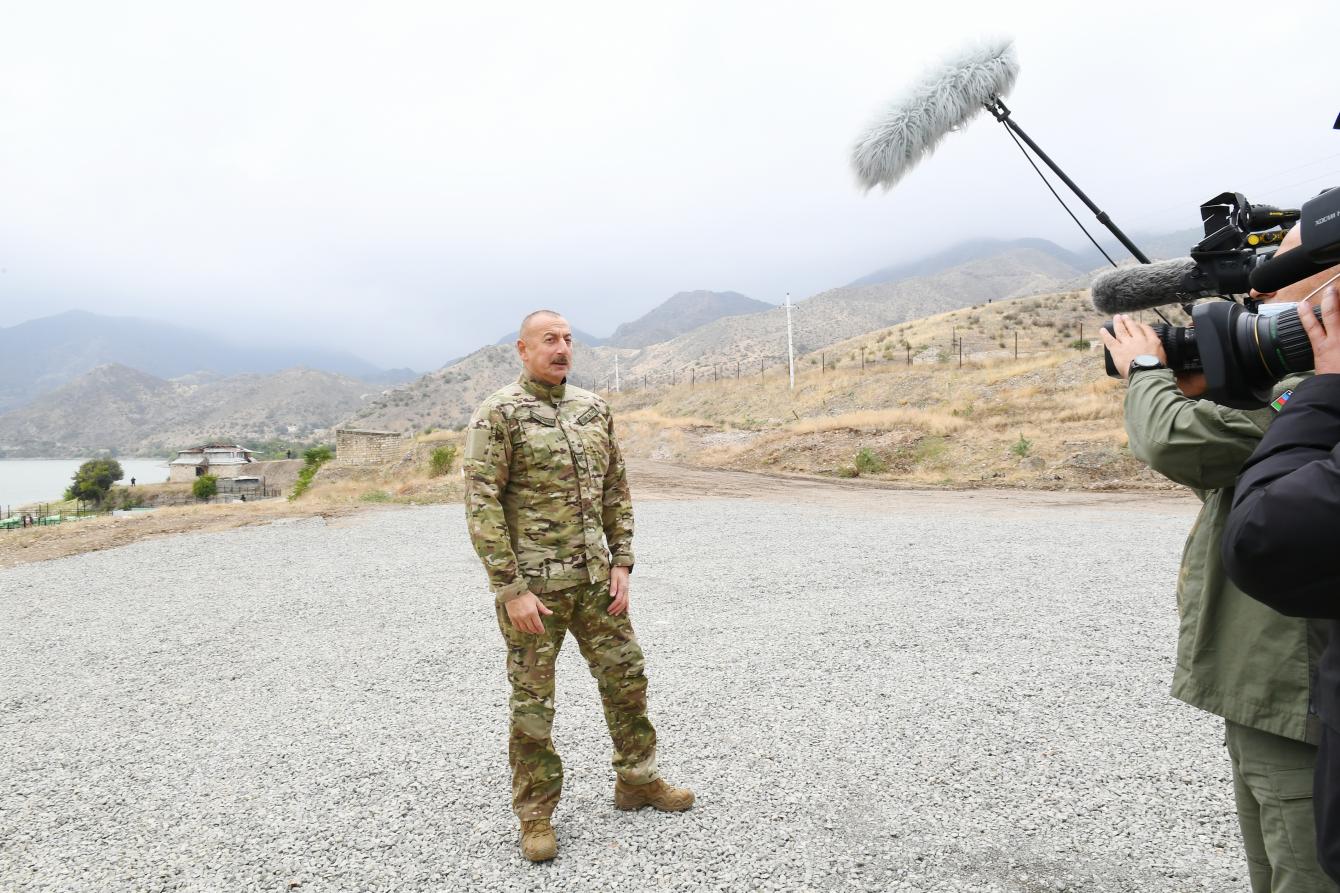
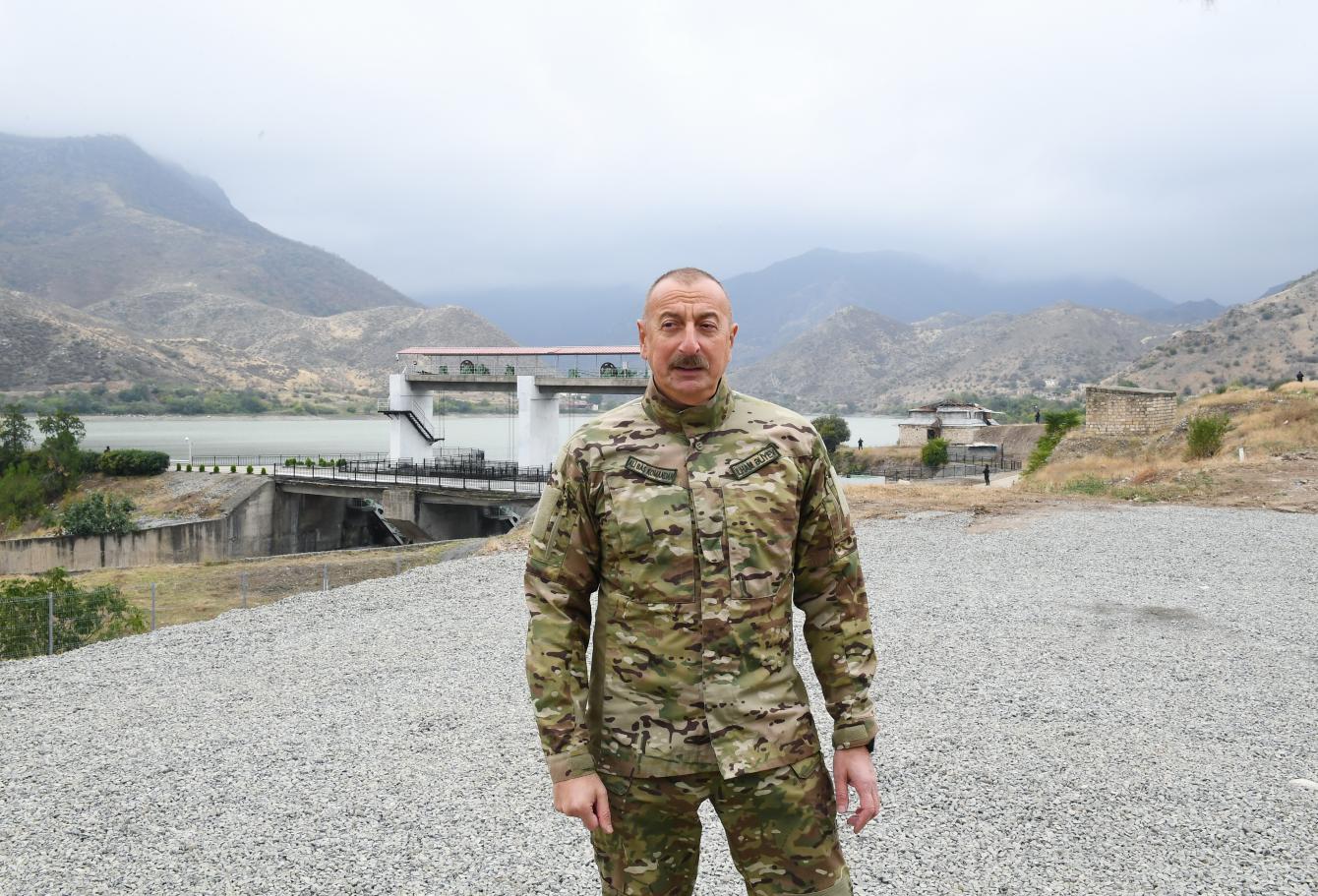
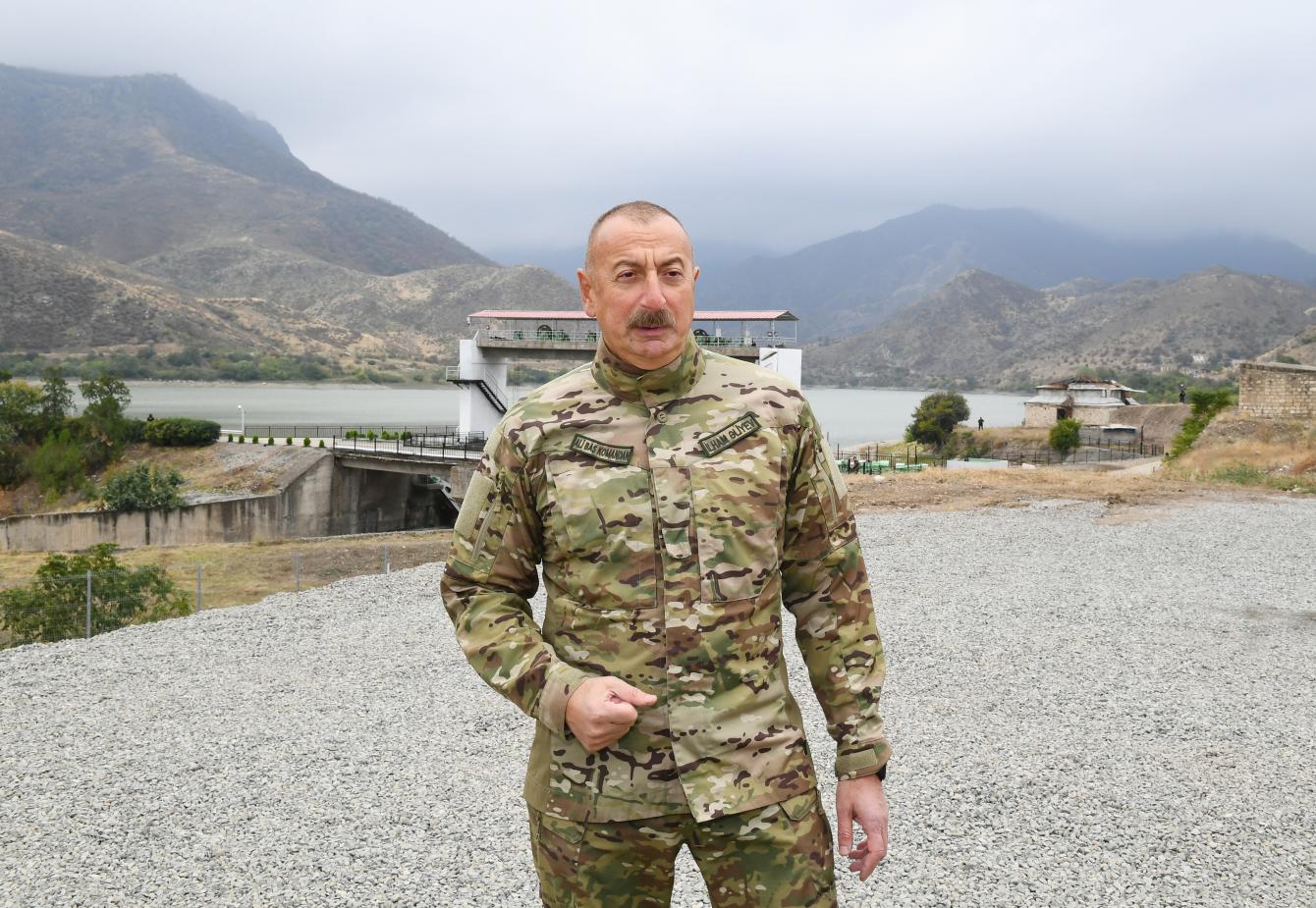
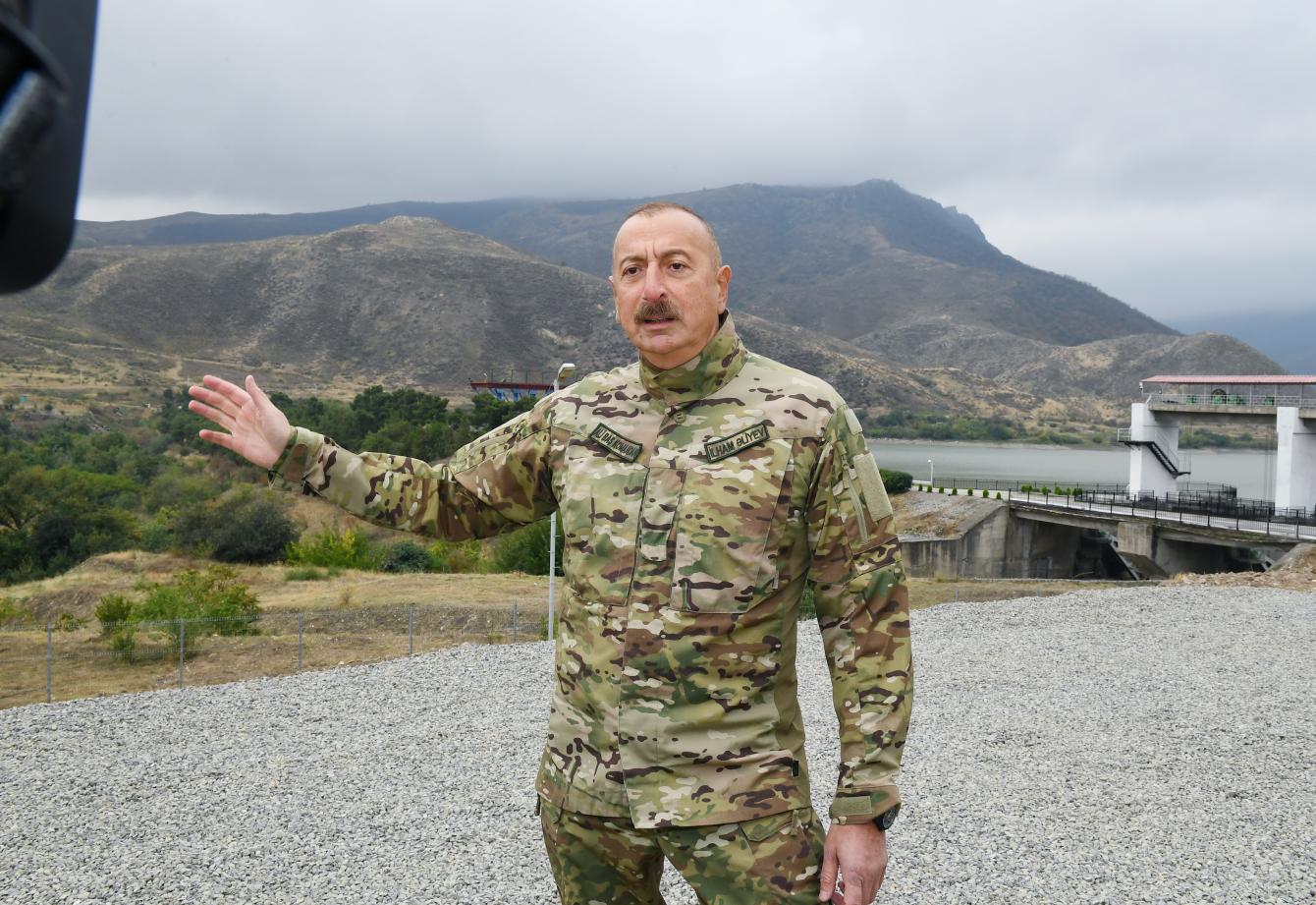
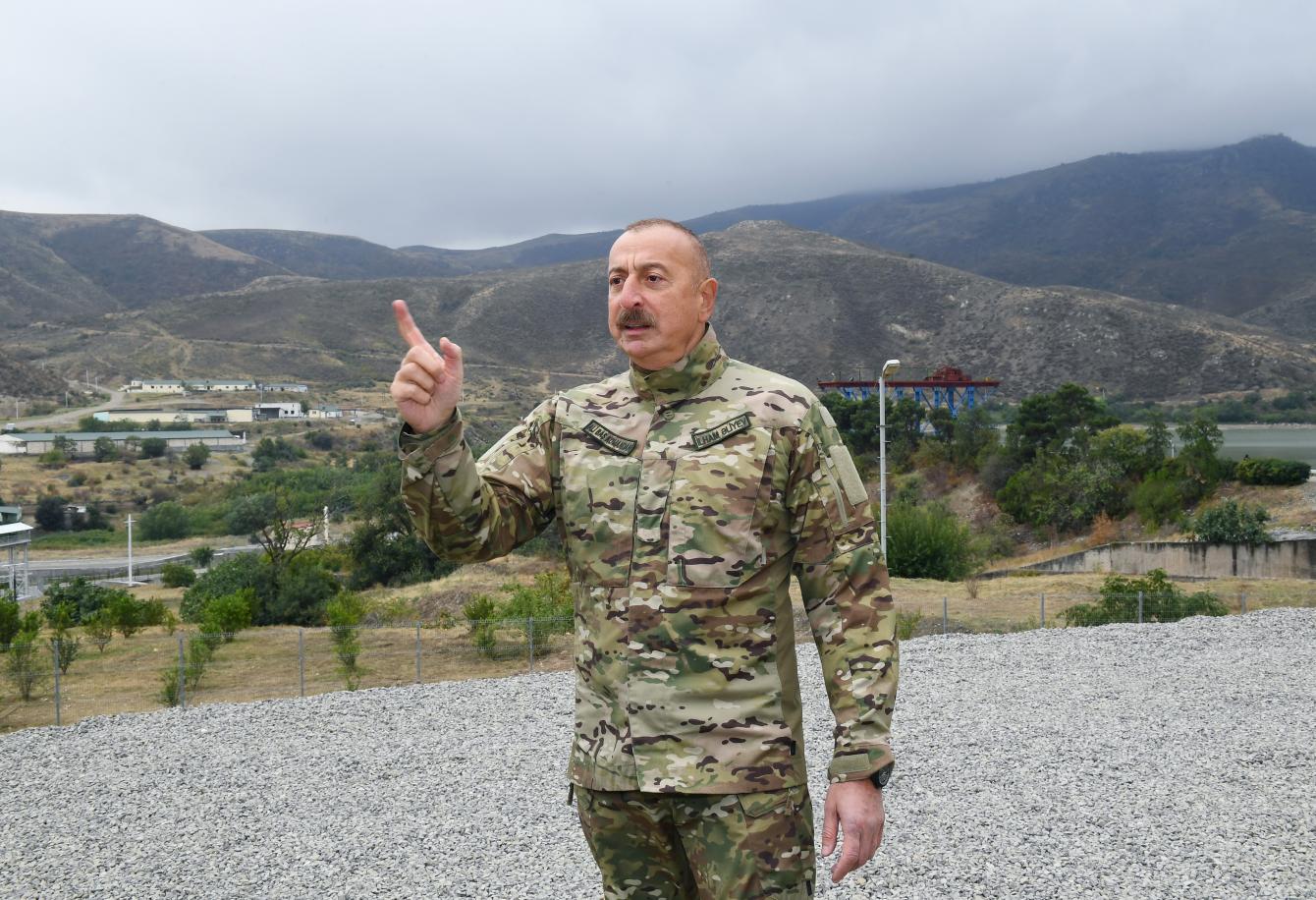
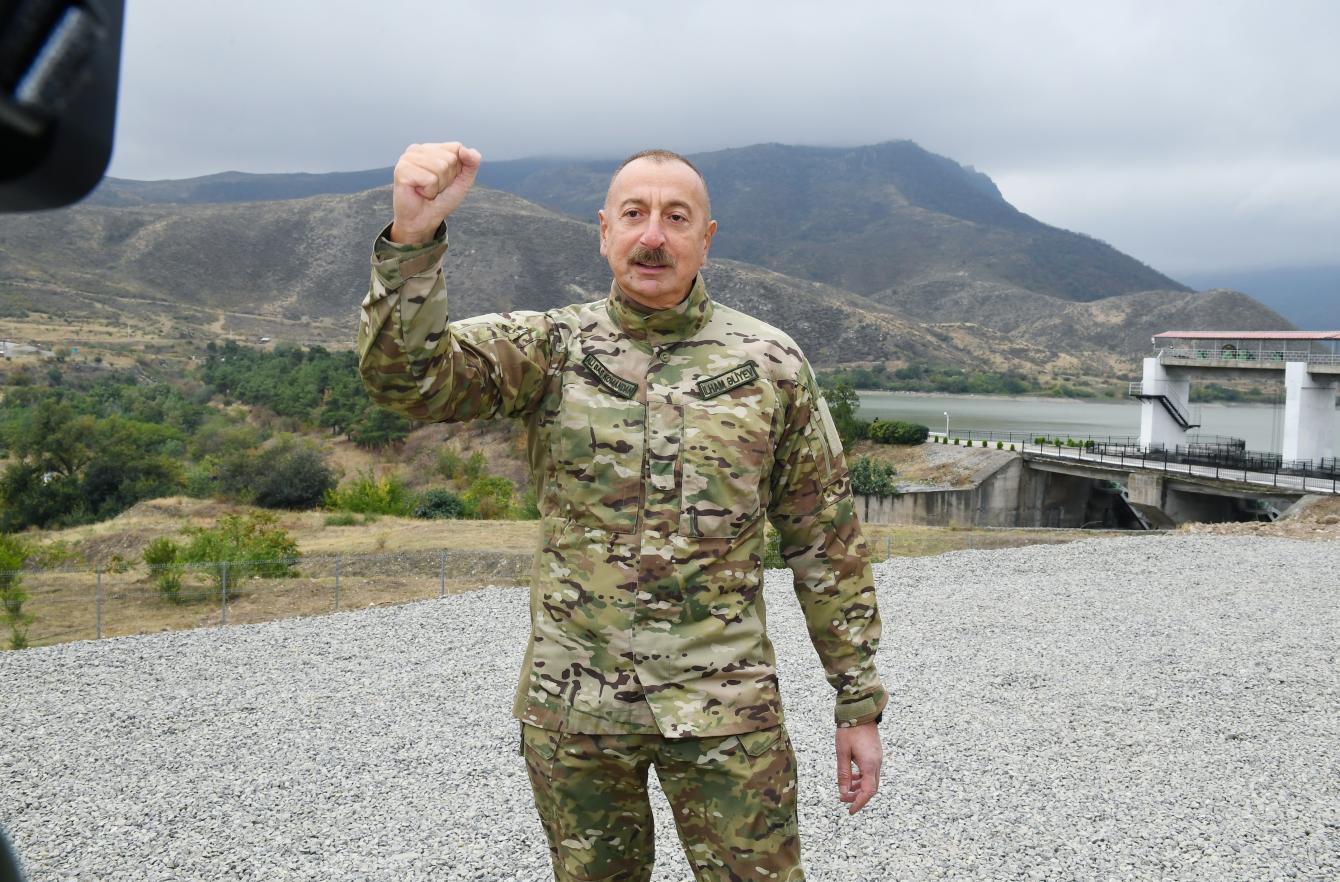
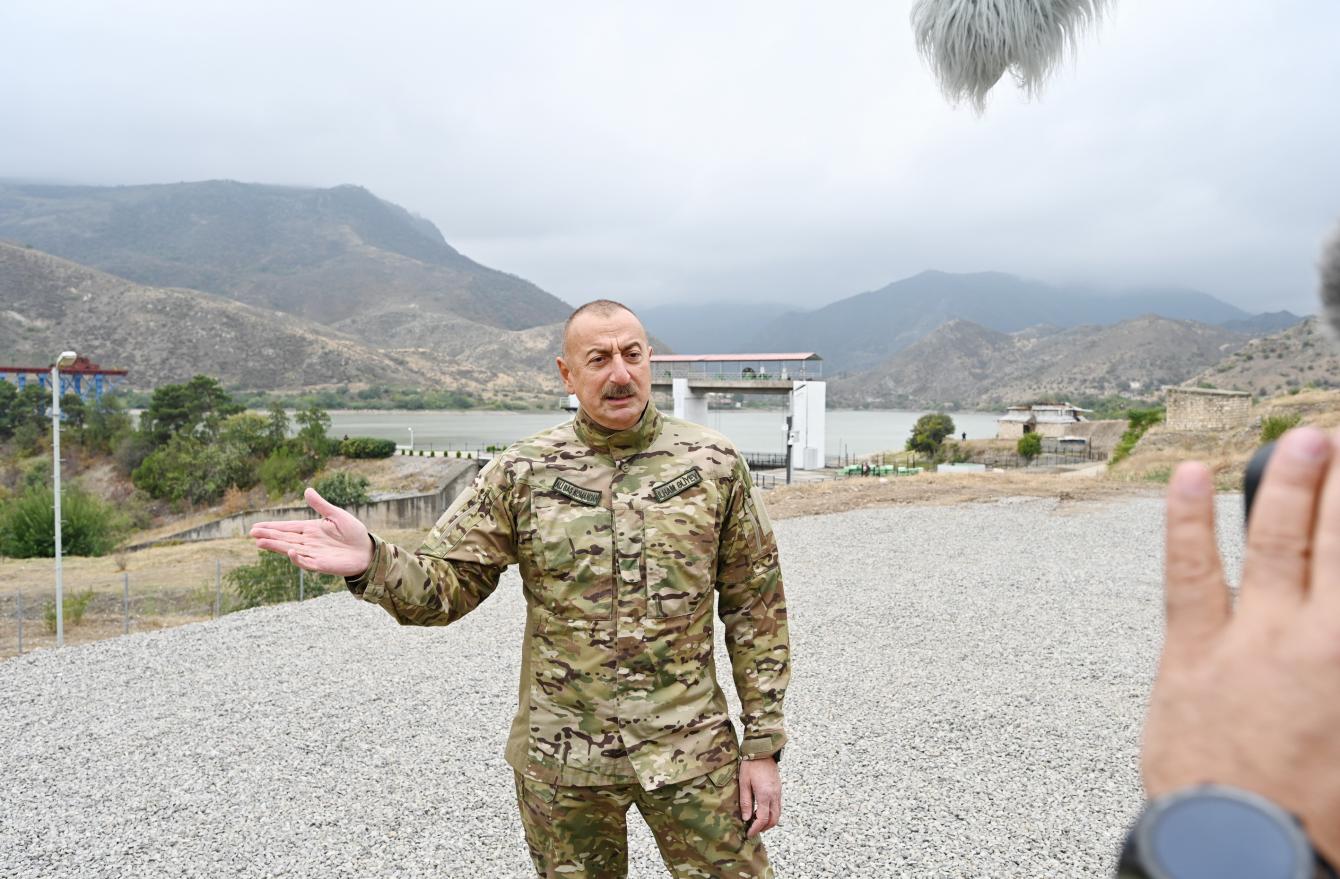
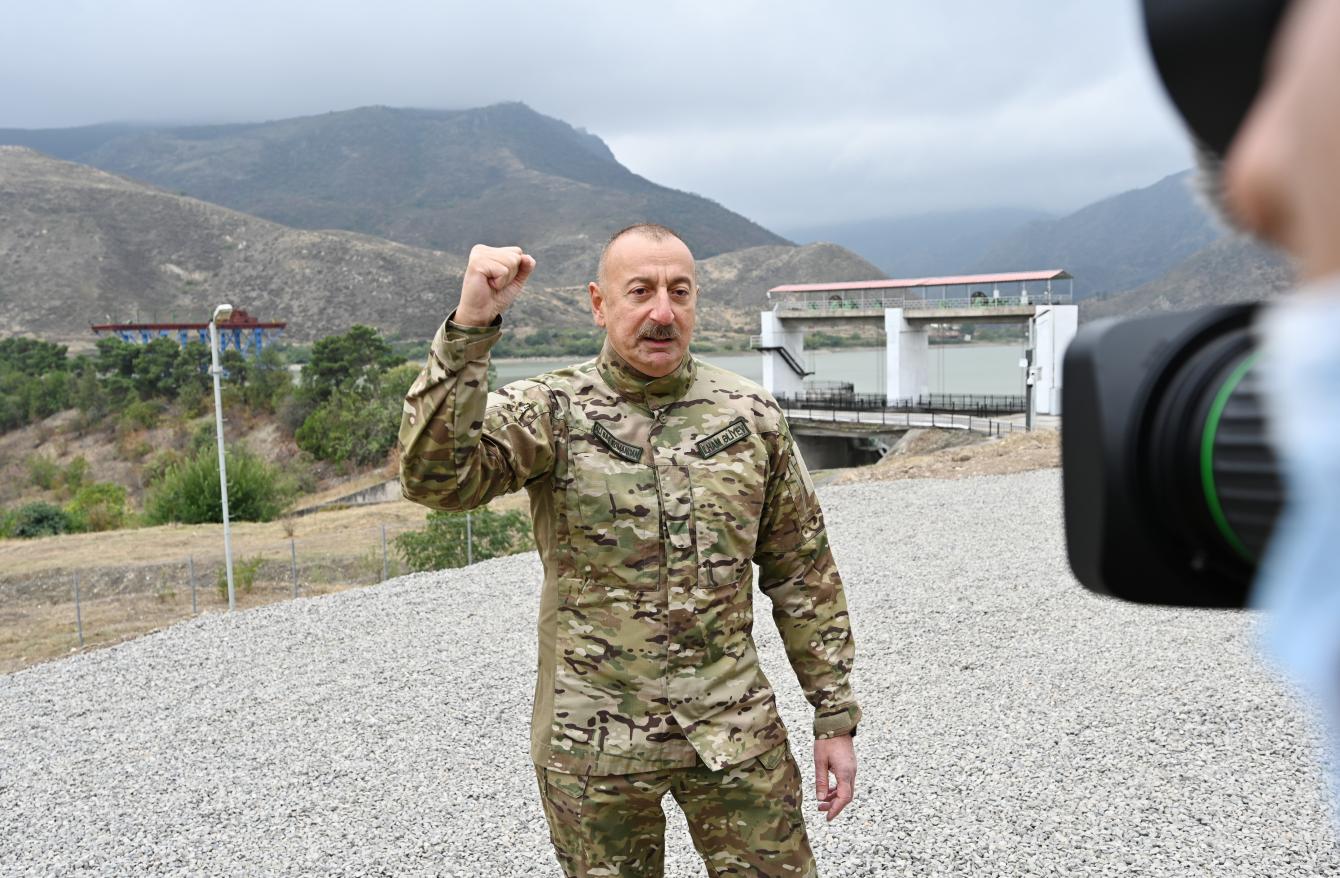
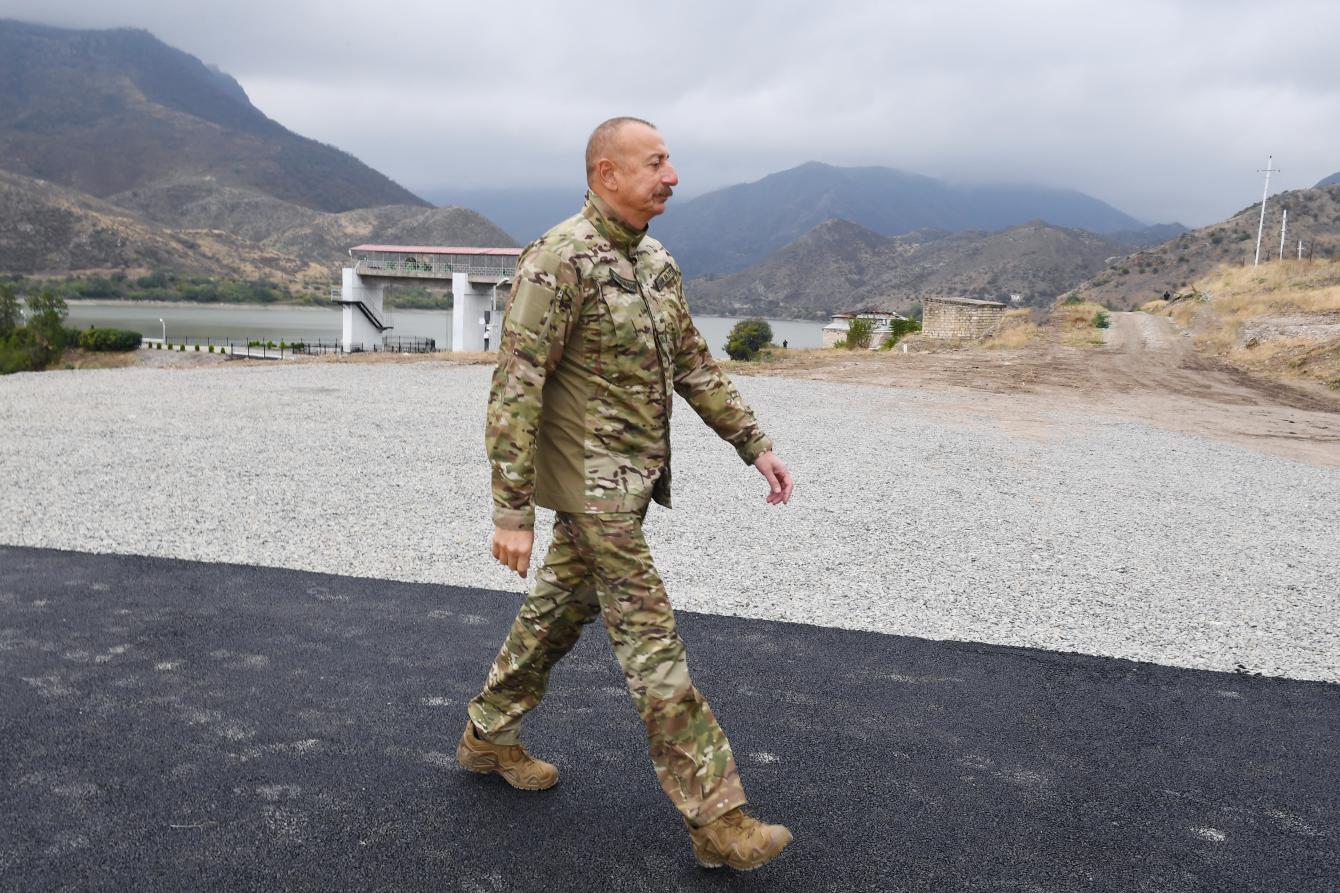

His Excellency Mr. Ilham Aliyev, President of the Republic of Azerbaijan
Excellency,
On the auspicious occasion of the celebration of the National Day of the Republic of Azerbaijan on 28 May, the Government and people of the Republic of South Africa join me in...
28 May 2025, 18:37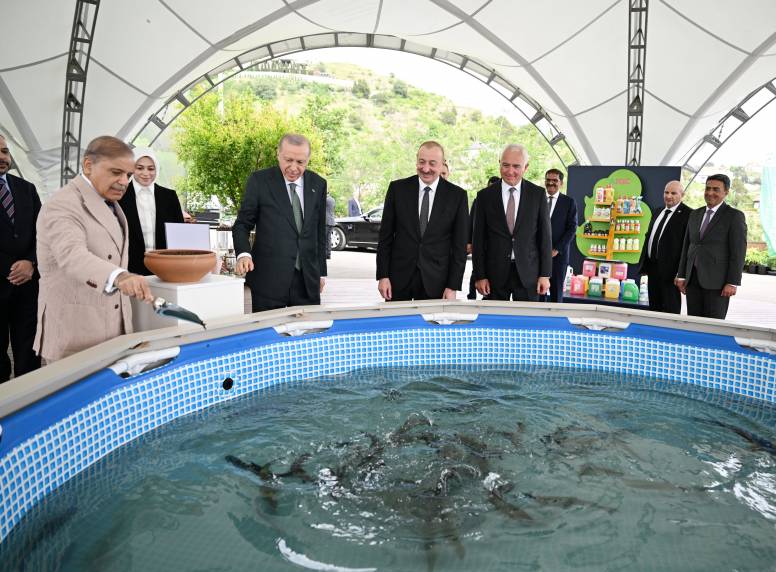
His Excellency Mr. Ilham Aliyev, President of the Republic of Azerbaijan
Dear President Aliyev,
On behalf of the American people, I want to congratulate you and the people of Azerbaijan on your Independence Day.
We value our relationship with the Republic of...
28 May 2025, 17:40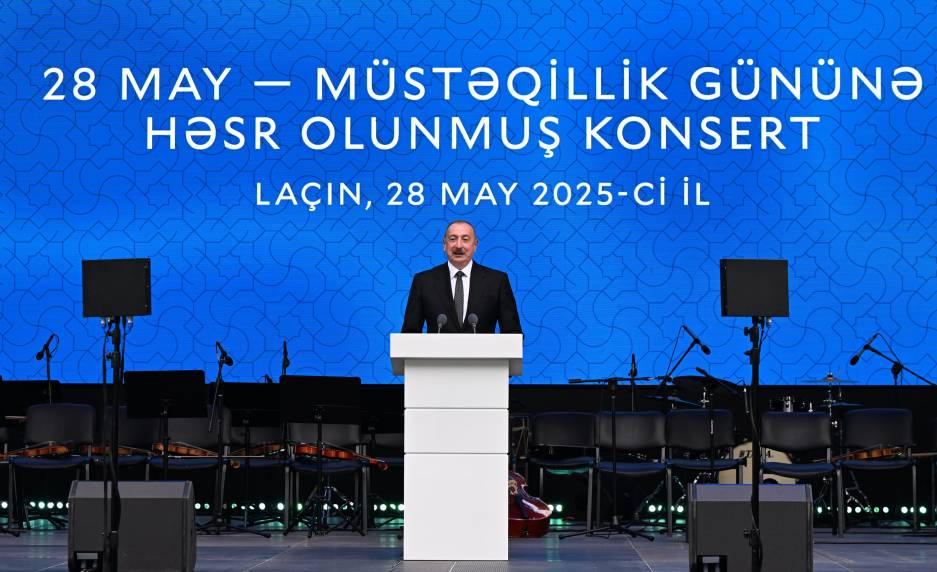
His Excellency Mr. Ilham Aliyev, President of the Republic of Azerbaijan
Dear Mr. President,
On the occasion of Azerbaijan's Independence Day, I extend my warmest congratulations to you and the people of Azerbaijan. I wish your country continued progress,...
28 May 2025, 15:25His Excellency Mr. Ilham Aliyev, President of the Republic of Azerbaijan
Your Excellency,
On behalf of the International Secretariat of the Organization for Democracy and Economic Development - GUAM and me personally, I would like to extend our most sincere...
28 May 2025, 13:58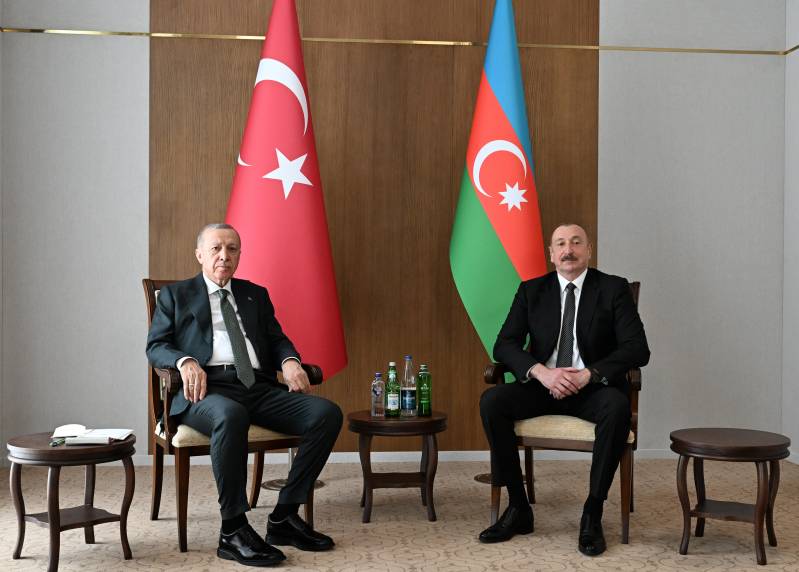
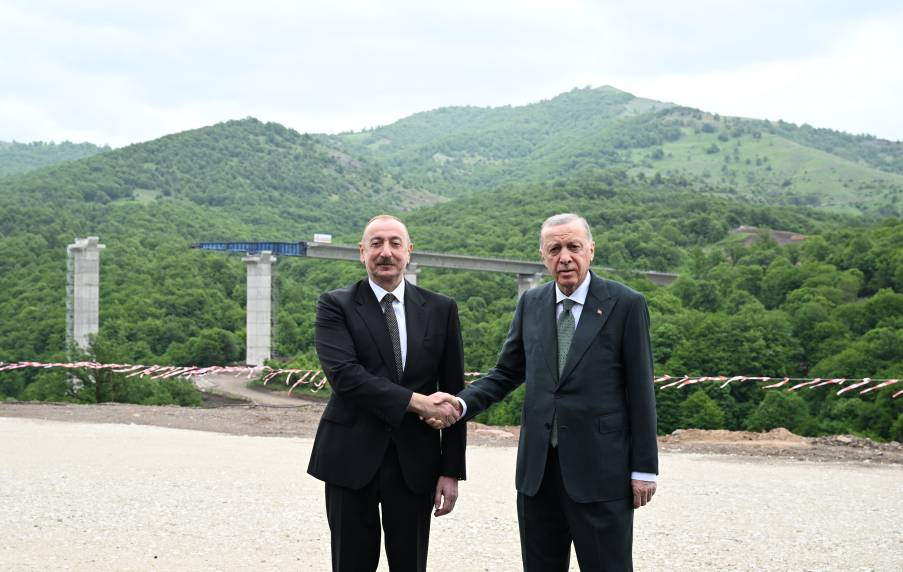
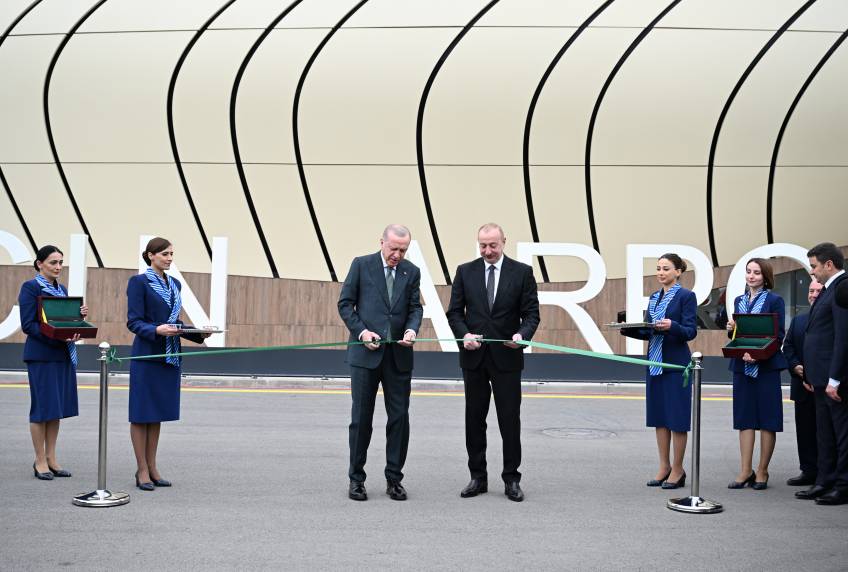
His Excellency Mr. Ilham Aliyev, President of the Republic of Azerbaijan
Dear Mr. President,
On the occasion of the National Day of Azerbaijan, it is with sincere joy that I send Your Excellency, on behalf of the Portuguese people and myself, greetings and wishes of...
27 May 2025, 19:55